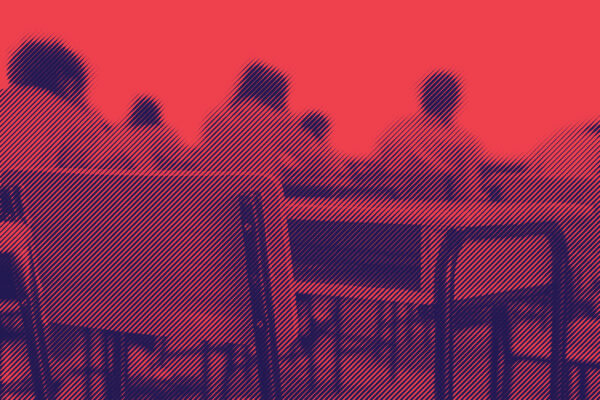Indigenous Justice & Educational Equity
We envision a Montana in which all youth have access to a fair and inclusive education system. That system should ensure that the opportunities of education are available to all students regardless of race, ethnicity, (dis)ability, language, poverty, gender, or zip code.
Montana’s education system must address historic and current discrimination against Indigenous people and other people of color. This system must create a fair and inclusive learning environment in which all cultures are valued and uplifted and all students have support and access to equal learning opportunities.
In 2016, ACLU of Montana staff visited with Indigenous community members and tribal leaders across the state to learn how we can best support the needs of Indigenous people in Montana. Overall, education equity was identified by communities as a top priority.
Our Goals:
- End the use of exclusionary discipline in schools and instead implement restorative justice models to resolve conflicts and to build healthy relationships between educators and students.
- Ensure that culturally relevant programming and curriculum are implemented in all of Montana’s public schools.
- Ensure that all students with disabilities have access to high-quality programming that provides appropriate learning opportunities with a focus on successful student outcomes.
Our Work:
Research and Outreach.
Our report Empty Desks: Discipline & Policing in Montana’s Schools, is the first detailed look at state-wide data regarding school discipline and pushout, mental health support staff, and law enforcement presence in Montana’s schools. As our report shows, inequities in education is a systemic issue in Montana. Through outreach we are educating stakeholders.
Local Community Organizing.
Our Indigenous Justice team is on the ground in Fort Peck working side-by-side with community members as they advocate for the best for their students.
Pushing for State-wide Reform.
We advocate in front of the Legislature, the Board of Education, and school administrators for long-term, systemic change to the education system. Our recommendations include:
- Limit exclusionary discipline for all students and ban its use for students in sixth grade and below.
- End permanent and routine policing of schools. Limit law enforcement presence in schools to serious criminal law matters, or where there is an imminent threat to student/staff safety.
- Fund the tools and training necessary to properly implement research-based alternatives that support educators in positively managing student behavior. Tools include using restorative justice approaches to discipline that are rooted in local Indigenous cultural practices when appropriate.
- Provide better campus mental healthcare services. Invest in and meet the recommended ratio for school-based support staff, including psychologists, nurses, counselors, and social workers.
- Establish detailed reporting practices for student discipline. Make student discipline reports readily available to the public.
Historically, the education system in the United States -- including Montana -- has been part of a harmful attempt to assimilate Indigenous people into the colonized society. It attempted to remove youth from their cultures, often tearing families apart, causing confusion and self-doubt among students, and ultimately setting Indigenous youth up for failure.
Education is a civil right, yet too many students in Montana are kept from fully accessing that right. Indigenous students are disciplined, pushed out of school, and arrested at higher rates their peers. Black students and students with disabilities also face disparities in comparison to white students and those without disabilities. The harms to students can be lifelong: they are less likely to graduate from highschool and more likely to be unemployed and ensnared in the criminal justice system.
In addition to the discipline rates, Indigenous cultures are not always recognized or honored at school. There are only eight states across the United States that explicitly have a law or policy requiring teaching Indigneous education, and 27 states make no mention of a single Native American in K-12 curriculum. While Montana requires the education system to recognize and preserve Indigenous heritage through Indian Education for All, not all schools are adequately implementing culturally relevant curriculum and other programming. When Indigenous students feel like their culture is welcome at school, they are more likely to thrive personally and academically.
While steps have been made toward ensuring educational equity for Indigenous students, the historical and current context of the colonized education system and implicit bias continue to harm Indigenous students today.

